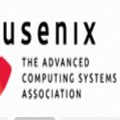In this paper we describe our experience in designing and evaluating our graduate level computer security seminar course. In particular, our seminar is designed with two goals in mind. First, to instil critical thinking by teaching graduate students how to read, review and present scientific literature. Second, to learn about the state-of-the-art in computer security and privacy research by reviewing proceedings from one of the top four security and privacy conferences including IEEE Symposium on Security and Privacy (Oakland SP), USENIX Security, Network and Distributed System Security Symposium (NDSS) and ACM Conference on Computer and Communications Security (CCS). The course entails each student to i) choose a specific technical session from the most recent conference, ii) review and present three papers from the chosen session and iii) analyze the relationship between the chosen papers from the session. To evaluate the course, we designed a set of questions to understand the motivation and decisions behind the students' choices as well as to evaluate and improve the quality of the course. Our key insights from the evaluation are the following: The three most popular topics of interest were Privacy, Web Security and Authentication, ii) 33% of the students chose the sessions based on the title of papers and iii) when providing an encouraging environment, students enjoy and engage in discussions.
翻译:在本文中,我们描述了我们在设计和评估我们的研究生级计算机安全研讨会课程方面的经验,特别是,我们的研讨会有两个目标:第一,通过教授研究生如何阅读、审查和介绍科学文献,灌输批判性思维;第二,通过审查四大安全和隐私会议之一的议事情况,了解计算机安全和隐私研究方面的最新技术知识;这四大安全和隐私会议包括IEEE关于安全与隐私的讨论会(Oakland SP)、USENIX安全、网络和分布式系统安全专题讨论会(NDSS)和ACM计算机和通信安全会议(CCS)。 课程要求每个学生从最近的会议中选择一个具体的技术会议,二)审查并提交所选定的会议的三个论文;三)分析所选定的会议文件之间的关系。为了评价课程,我们设计了一系列问题,以了解学生选择的动机和决定,并评价和提高课程的质量。我们从评价中得出的主要见解如下:三个最受欢迎的专题是隐私、网络安全和真实性;三)33%的学生在提供鼓励的环境论文时选择了会议的名称。




